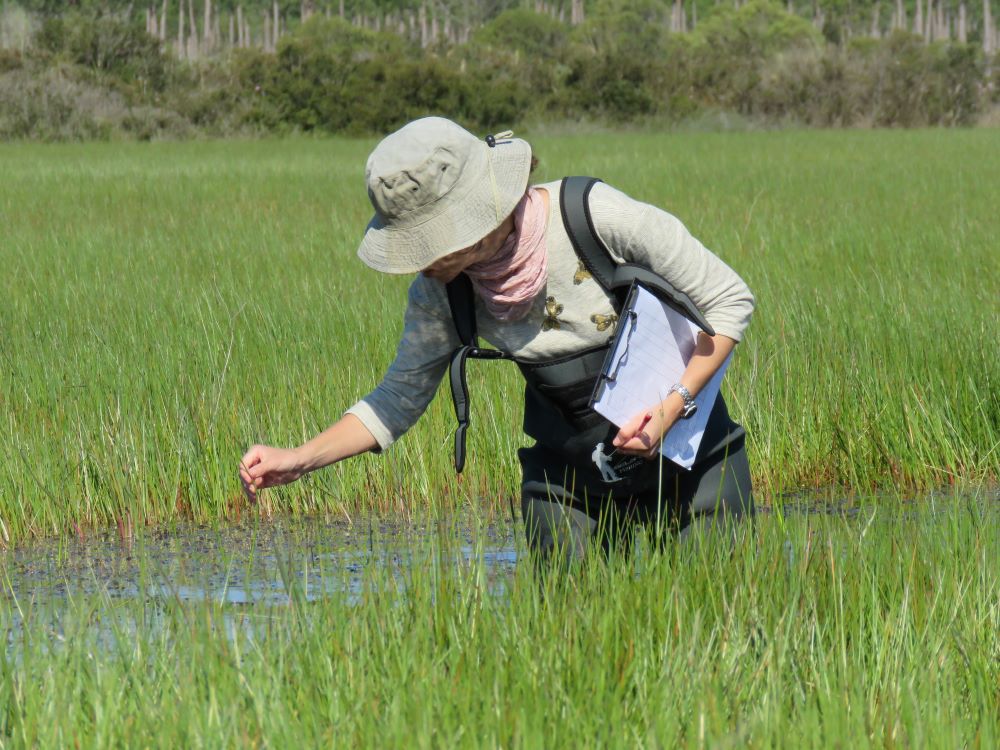Los estudios se realizarán en colaboración y bajo el aval científico de la Estación Biológica de Doñana
La convocatoria está abierta hasta el 31 de enero
Un año más, la Fundación Jaime González-Gordon convoca cuatro becas para el desarrollo de proyectos de Investigación sobre el Parque Nacional de Doñana y su entorno dentro de un programa de Máster universitario. Esta convocatoria se desarrollará en colaboración y bajo el aval científico de la Estación Biológica de Doñana, instituto de investigación perteneciente al Consejo Superior de Investigaciones Científicas (CSIC).
Destinatarios
Estudiantes de programas de máster universitarios oficiales en universidades españolas o extranjeras durante el curso académico 2023-2024.
Temática
Abierto a todas las ramas de conocimiento. Los trabajos de máster deberán centrarse en el entorno de Doñana (no necesariamente el espacio protegido) pero no hay ninguna limitación en relación al campo temático (biología, antropología, historia, geología, arte …).
Dotación
• La beca consiste en una dotación de 1500€ que se transferirán al estudiante para su utilización en apoyo al desarrollo del proyecto.
• Si el proyecto implica trabajo de campo en Doñana, el beneficiario tendrá acceso a las instalaciones de la Institución Científico Técnica Singular ICTS-Doñana (http://icts.ebd.csic.es/en/web/icts-ebd/home ), incluyendo alojamiento.
• Si el proyecto implica la utilización de los laboratorios y servicios de la Estación Biológica de Doñana (http://www.ebd.csic.es/inici ), los servicios se cobrarían a coste reducido, como personal de la EBD-CSIC.
Para proyectos que impliquen trabajo en la ICTS-Doñana o en la EBD-CSIC, la persona beneficiaria deberá tener un tutor o un co-tutor de la Estación Biológica que se encargará de las solicitudes de acceso y del contacto con las responsables del espacio protegido.
Solicitud
Los candidatos deberán presentar la siguiente documentación (en castellano):
• Certificado académico oficial de las notas obtenidas durante el grado o la licenciatura.
• Curriculum vitae
• Carta de motivación
• Propuesta de proyecto. Longitud máxima: 2 páginas.
• Evidencia de estar matriculado o en proceso de inscripción en un programa de máster durante el
curso 2021-2022.
• Carta de apoyo firmada por el tutor si lo hubiese. En caso de no tener tutor y que la propuesta fuese seleccionada, y en los casos en los que el trabajo precise acceso a la ICTS-Doñana o a la EBD-CSIC y el tutor no fuese miembro de la EBD-CSIC, la Estación Biológica haría propuesta de posibles tutores o co-tutores.
Toda esta documentación se mandará por correo electrónico a la Fundación Jaime González Gordon (direccion@fundacionjaimegonzalezgordon.es) con copia a la Oficina de Coordinación de la Investigación de la EBD-CSIC (coordinacion@ebd.csic.es) no más tarde del 31 de enero de 2024.
Evaluación de solicitudes
Las propuestas se valorarán en el plazo de dos semanas desde la fecha límite de presentación. Para la evaluación se tendrá en cuenta el interés del proyecto y su calidad científica, la relevancia para Doñana, la capacidad aparente del candidato para llevar a cabo el proyecto. La comisión de selección podrá entrevistar a los candidatos durante el proceso de evaluación si así lo considera conveniente.
La valoración de los candidatos se hará de forma consensuada entre representantes de la Fundación y de la EBD-CSIC. La decisión será inapelable.
La resolución se comunicará a los candidatos por correo electrónico.
Compromiso de las personas beneficiarias
-Mandar copia del Trabajo Fin de Máster resultante del proyecto a la Fundación y a la EBD-CSIC, indicando la fecha de la defensa pública.
-Preparar un vídeo de 2-3 minutos de duración o un texto divulgativo presentando los resultados del trabajo. Estos materiales serán accesibles a través de las páginas web de la Fundación y/o de la EBD-CSIC.
-La persona beneficiaria se compromete a agradecer el apoyo de la Fundación en cualquier artículo científico o comunicación en congreso que pudiese derivar del proyecto y mandará copia del trabajo publicado a la Fundación.


